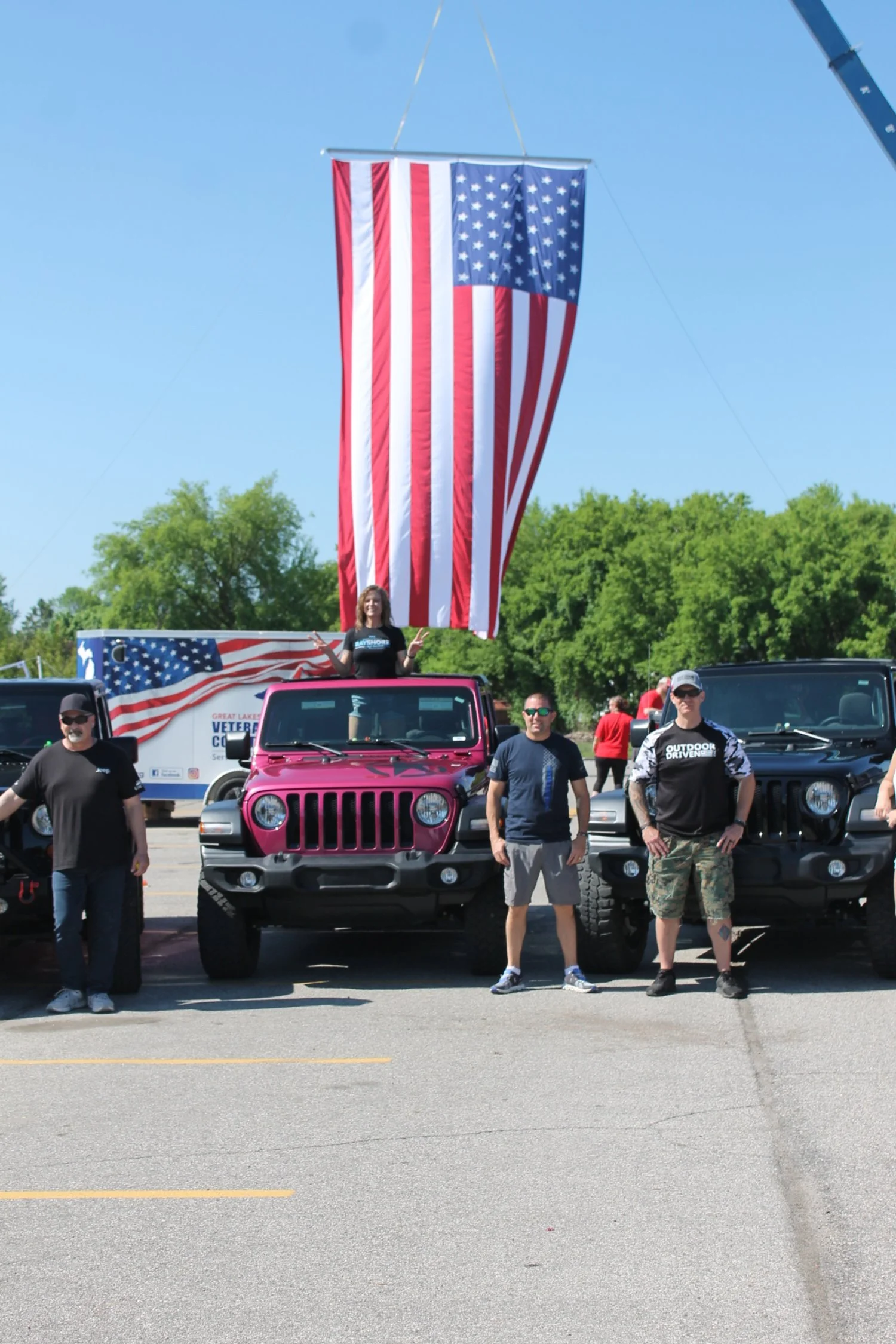Why Jeeps?
The Jeep Freedom Ride and the legacy of Jeep’s military history are deeply intertwined, both rooted in the ideals of service, resilience, and support for those who have fought for freedom.
Jeeps were born out of necessity during World War II, becoming an essential tool for U.S. soldiers on the battlefield. These rugged vehicles were more than just transportation; they symbolized endurance, adaptability, and the unwavering spirit of the American military. From the beaches of Normandy to the mountains of Korea and the jungles of Vietnam, Jeeps carried troops, evacuated the wounded, and served as a lifeline in war. Their role in supporting soldiers laid the foundation for the modern off-road Jeep community, which still honors this heritage today.
The Jeep Freedom Ride carries this history forward, transforming the Jeep’s legacy of military service into a mission of giving back. Just as Jeeps once supported troops on the front lines, this event now supports those same veterans in their post-service lives. By raising funds for charities dedicated to veterans' health and well-being, the Jeep Freedom Ride embodies the same spirit of duty and camaraderie that defined the Jeep's military origins.
Participants in the ride aren’t just enjoying an off-road adventure; they are actively participating in a tradition of service—one that began with the Jeep’s first military deployment and continues today as Jeep enthusiasts rally together to make a difference. The event is not only a gathering of Jeep lovers, though that is a big part of it, but it is a heartfelt tribute to the heroes who defended our freedoms, ensuring that they receive the care and support they deserve.
By joining the Jeep Freedom Ride, participants are not only celebrating the adventurous and resilient spirit of Jeeps but also honoring the legacy of the men and women who relied on these vehicles in service. It’s a powerful way to turn passion into purpose, ensuring that the history of Jeep—built in service to soldiers—continues to serve those who once served us.

